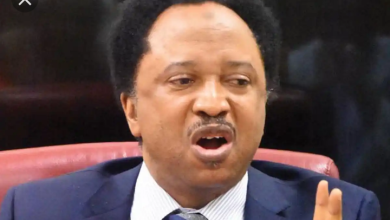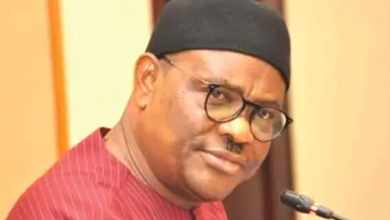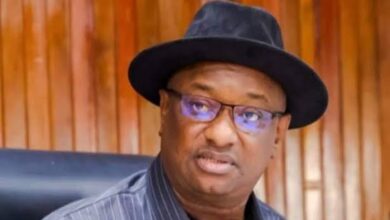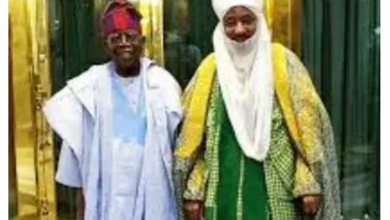Tinubu VS Atiku, Obi: Ambassador breaks down EU report

In a recent interview, former Ambassador Olufunso Olumoko provided an in-depth analysis of the European Union’s (EU) mission report on Nigeria’s 2023 presidential elections. The report focused on the main candidates, President Bola Tinubu from the All Progressives Congress (APC), former Vice President Atiku Abubakar representing the Peoples Democratic Party (PDP), and Mr. Peter Obi from the Labour Party. Olumoko, who served as a career ambassador to Thailand with accreditation to Myanmar, shared his perspectives on the report’s biases, positives, and negatives.
According to Vanguard, the presidential election took place on February 25, with Tinubu declared the winner by the Independent National Electoral Commission (INEC). However, the outcome faced legal challenges, and during this period, the EU mission released its report, sparking intense reactions from various Nigerians, including the Presidency.
Olumoko believes that the EU report was unbalanced and disproportionately emphasized the negatives such as insecurity, violence, technical failures, and vote-buying. He argued that the report failed to acknowledge the immense efforts of INEC in conducting elections across thousands of polling stations, tackling logistical constraints and challenging terrains. While acknowledging the existence of anomalies, Olumoko felt that the report exaggerated their scale.
He stressed that while international electoral monitors, including those from the EU, the US, the Commonwealth, the African Union (AU), ECOWAS, and local organizations, serve a valuable purpose in strengthening Nigeria’s electoral process, the ultimate authority lies within the country itself and its electoral laws.
Olumoko emphasized the importance of considering reports from international observers to enhance African democracies. He cautioned against disregarding such reports outright, as they often contain useful observations and recommendations for improving the electoral process. He highlighted the significance of upholding the sanctity of voting materials, timely commencement of voting, effective operational frameworks for INEC, affirmative action for women’s participation, facilities for disabled voters, and swift punishment for electoral offenses.
Regarding the EU mission’s claim that shortcomings in law and electoral administration eroded trust in INEC and hindered inclusive elections, Olumoko disagreed. While acknowledging some lapses, he argued that they did not significantly discredit INEC. Despite the prevailing climate of insecurity and threats from political parties, the elections were successfully conducted, resulting in a mix of ruling and opposition party victories, including the opposition LP winning in the state where the current president originates. Olumoko criticized the EU report for its lack of objectivity.
Olumoko also expressed disagreement with the EU mission’s assertion that transparency and operational failures undermined trust in the electoral process and challenged the right to vote. He viewed many of the EU’s complaints as subjective and biased. He emphasized that no electoral system, including those of the countries represented by the monitors, is perfect, and each has its imperfections and challenges.
To improve elections in Nigeria, Olumoko recommended learning from past mistakes, continuous improvement by INEC, and strengthening electoral education for voters. He emphasized the importance of educating voters on participatory democracy, voting procedures, and handling ballot papers to reduce wasted and invalid votes.
WealthyTemps (
)





